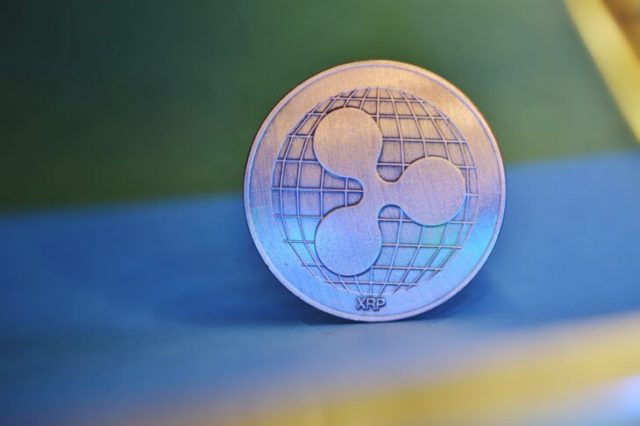Last week, the UN said the Israeli military shot at its peacekeepers, forcibly entered its base, disrupted logistics and injured more than a dozen of its troops in southern Lebanon.
Israel’s attacks on the peacekeeping mission, which has operated in Lebanon for more than 45 years, have been widely condemned by the international community. Unifil – the UN peacekeeping mission in Lebanon – called the violations “shocking”.
Israel accused Hezbollah of operating in areas close to Unifil posts. Israeli Prime Minister Benjamin Netanyahu warned on Sunday that UN peacekeepers in Lebanon are in “danger.” He lamented that some UN peacekeepers were injured last week and called on UN Secretary-General António Guterres to withdraw the peacekeepers “immediately”.
Guterres said attacks on peacekeepers “may constitute a war crime” and that “Unifil and its facilities should never be targeted.” The UN said its troops remain in Lebanon despite the attacks.
Here’s what you need to know.
What happened last week?
Unifil headquarters in Naqoura and nearby positions were repeatedly attacked by Israel.
On Wednesday, Unifil said Israel Defense Forces (IDF) soldiers “deliberately fired at and disabled” a UN position in Labbouneh.

Two peacekeepers were injured on Thursday after an IDF tank fired at an observation tower at Unifil headquarters, hitting it directly and causing them to fall.
On Friday, two Unifil soldiers were injured after two explosions occurred near an observation tower. The IDF said it was responding to what it identified as an “immediate threat” against it, adding that it had instructed Unifil personnel to move.
Later on Friday, a peacekeeper was shot in Naquora amid “military activity,” according to Unifil, which said UN buildings in Ramyah suffered “significant damage” from nearby bombing explosions.
On Saturday, Unifil said IDF soldiers disrupted a critical Unifil logistics move near Meiss ej Jebel.
And earlier on Sunday, Unifil said the IDF violated international law after pulling back its tanks to its post in Ramyah, forcibly entering the position and requesting that the base turn off its lights. The IDF later said one of its tanks retreated to the post because it was evacuating soldiers wounded by an anti-tank missile.
Israel’s actions were condemned by several of its allies, including France and the United Kingdom, who said they were “horrified” by reports that Israel deliberately attacked UN bases last week.
What is Unifil?
The United Nations Interim Force in Lebanon (UNIFIL) was created by the UN Security Council following Israel’s first invasion of southern Lebanon in 1978.

Its objective was to confirm the withdrawal of Israeli forces from the country, restore international peace and security, and help the Lebanese government restore its effective authority in the area.
In June 1982, Israel invaded Lebanon for the second time and subsequently established a security zone within the country, which it remained in until its withdrawal in 2000.
In 2000, Unifil established the so-called “Blue Line” (“Blue Line”, in literal translation) – an area covering 120 kilometers across southern Lebanon to guarantee the complete withdrawal of Israeli forces.
It acts as a de facto border between the two countries, as Lebanon and Israel have an ongoing dispute over the border.
Unifil troops are tasked with monitoring border violations and keeping the area, which includes Hezbollah strongholds, safe.

Although UNIFIL is a peacekeeping mission, troops may use force in certain circumstances, including self-defense, to protect civilians under imminent threat of violence, and to protect UN personnel facilities and equipment.
Unifil’s objective is renewed annually by the UN Security Council at Lebanon’s request. The Security Council most recently extended the mandate until August 31, 2025.
Who makes up Unifil?
The mission is made up of more than 10,000 people from 50 countries, the majority of whom are soldiers.

Indonesia, Italy, India, Nepal, Ghana and Malaysia contribute the majority of troops. Spain, China, Ireland and France also make up a large presence. Some countries contribute only one Unifil soldier, such as the United Kingdom, Peru and Nigeria.
The so-called “peacekeepers” operate in an area of 1,060 km² between the Blue Line and the Litani River in southern Lebanon. They occupy 50 positions, with Unifil’s headquarters located in Naqoura in the southwest of the country.
Is Brazil part of Unifil?
According to Unifil’s official website, The Unifil force currently consists of a total of 10,058 “peacekeepers” of which 11 were sent by Brazil.
The number, however, does not reflect Brazil’s historical involvement with the United Nations mission.
Between 2011 and 2021, Brazil led Unifil’s naval arm, the Maritime Task Force (FTM), and deployed almost 4,000 military personnel to form the peacekeeping forces during this period, according to Itamaraty.
During this period, the Brazilian Navy maintained a ship and an organic aircraft in support of Unifil on the Lebanese coast to prevent the entry of illegal weapons and contraband, in addition to contributing to training for the Lebanese Navy.
There were 18 participations of ships from the Brazilian Naval Force, with soldiers being replaced every six months.
* With information from Léo Lopes, Kara Fox, Eugenia Yosef and Nadeen Ebrahim, from CNN
This content was originally published in What is Unifil, the UN peacekeeping mission in Lebanon that is in crisis with Israel on the CNN Brasil website.
Source: CNN Brasil
Bruce Belcher is a seasoned author with over 5 years of experience in world news. He writes for online news websites and provides in-depth analysis on the world stock market. Bruce is known for his insightful perspectives and commitment to keeping the public informed.







